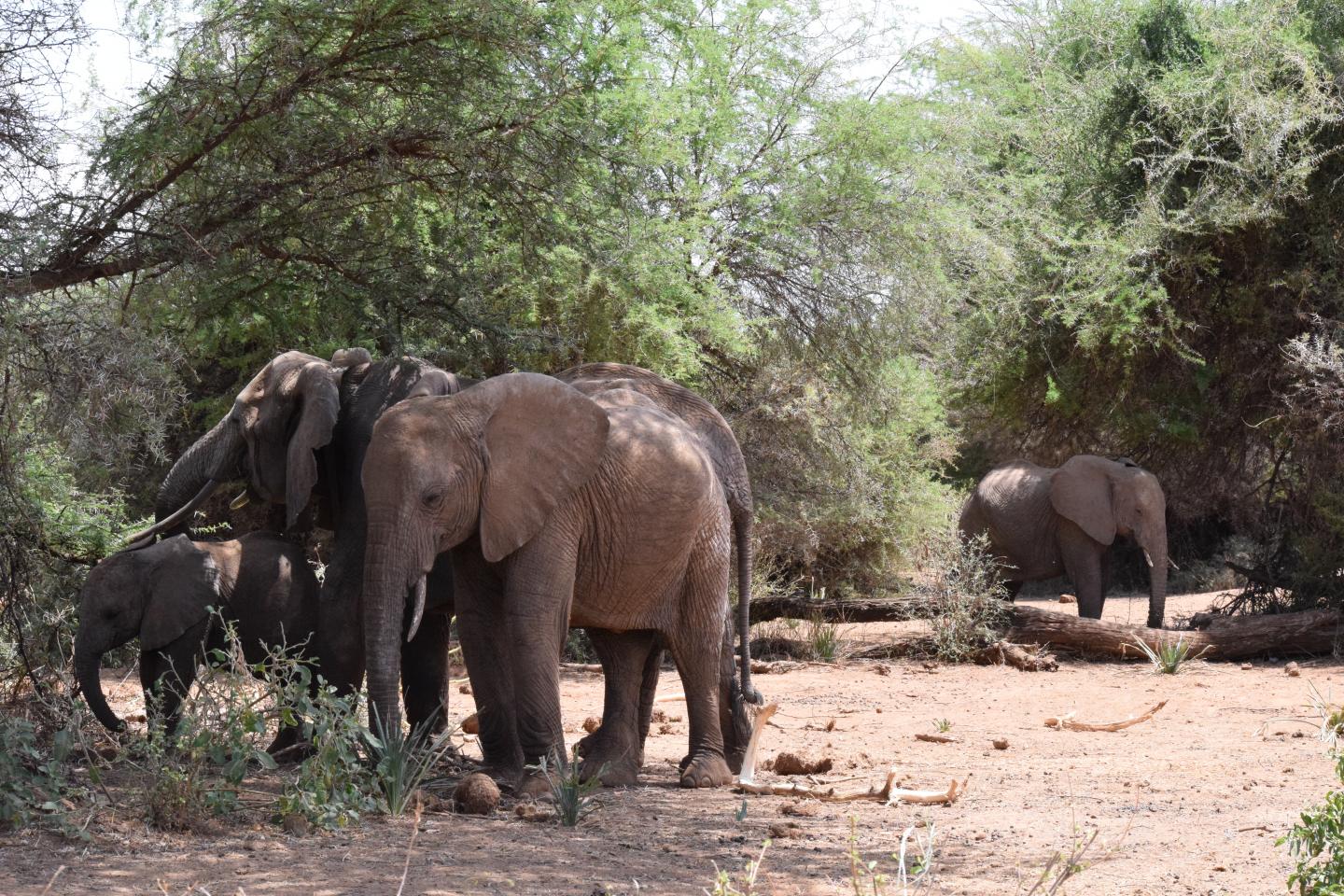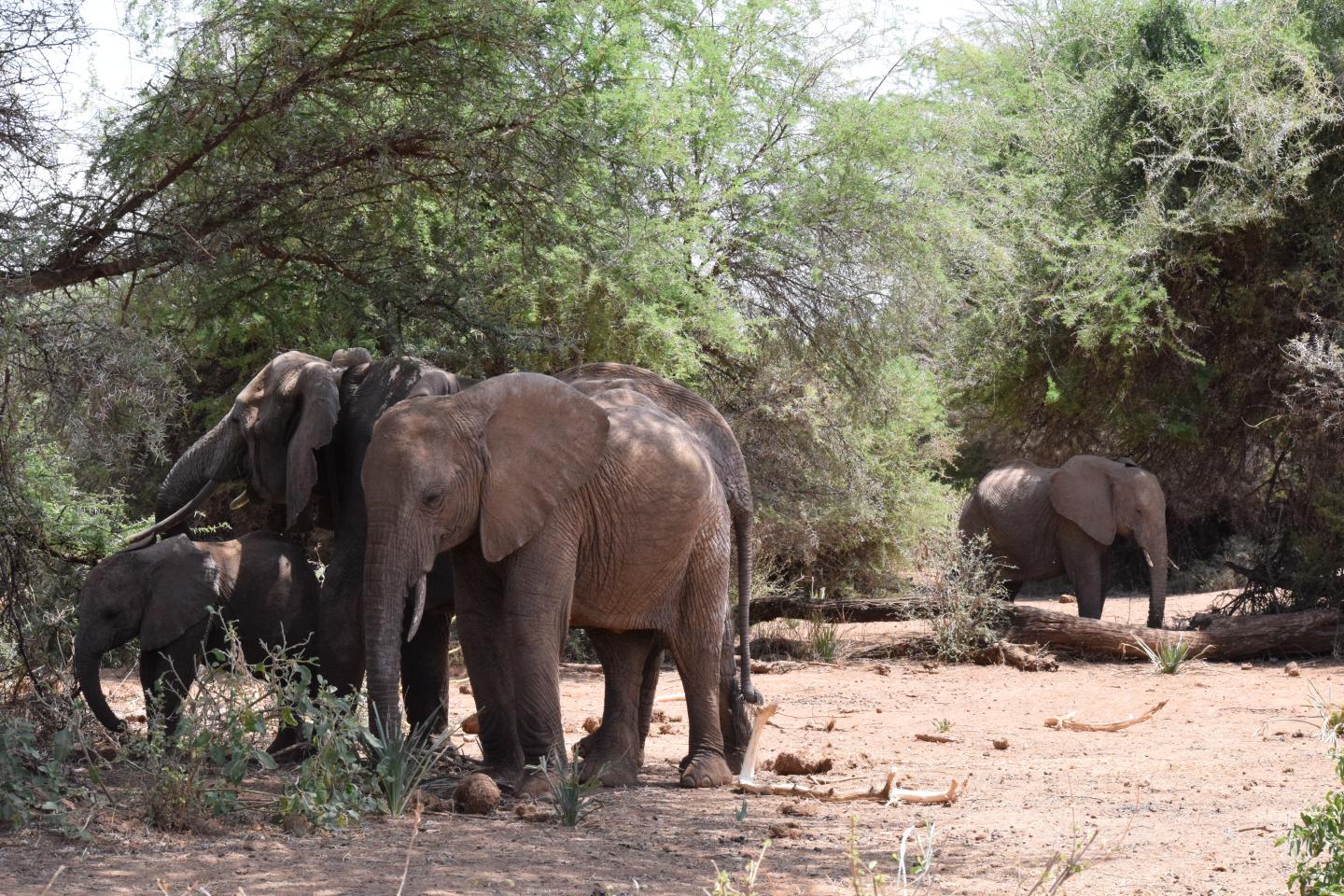
Credit: Shifra Goldenberg/Save the Elephants, Colorado State University
Elephants live in a social structure with a level of complexity that rivals that of human societies. Given this context, researchers are concerned about the impacts of poaching that targets older individuals on the animals' social functioning.
A new study led by Colorado State University analyzed the social interaction patterns of juvenile female elephants and found that orphans have less access to mature, dominant individuals than non-orphaned elephants, whose primary social partners are their mothers and aunts.
Social integration with surviving adults in the population may offset the costs to orphans of losing their mothers, but researchers said the findings indicate orphans are not able to fully compensate for their lost bonds, at least not during the initial years following disruption.
"Previous work in this and other elephant populations has shown that like other social species, elephants strengthen existing bonds if they lose important social partners," said author Shifra Goldenberg, a postdoctoral researcher in CSU's Department of Fish, Wildlife, and Conservation Biology and with Save the Elephants, a nonprofit conservation organization in Kenya. "Our study suggests that despite this compensatory social behavior, orphans experience a social disadvantage compared to non-orphans."
The study was conducted in the Samburu and Buffalo Springs National Reserves in northern Kenya, the site of Save the Elephants' long-term elephant monitoring project. Over the last decade, the population has experienced increased ivory poaching and a severe drought, which left many young elephants without mothers and grandmothers.
"Access to older, dominant individuals is critical for juveniles, as mature individuals are knowledge repositories and have preferential access to resources," said co-author George Wittemyer, associate professor at CSU and chairman of the scientific board of Save the Elephants. "Losing this access may have long-term ramifications for orphans."
Elephants are highly expressive, and the friendly interactions recorded in this study — including body rubbing and greeting — reflect the degree to which animals are socially integrated. The team observed little interaction of orphans with mature females while feeding, though it was less pronounced when the elephants were resting. This tendency for orphans to strengthen bonds with non-dominant animals highlights the indirect effects of poaching on elephant social behavior, and one that may put orphans at risk in terms of survival.
Goldenberg and Wittemyer said they will follow up this study by looking at the larger population-level implications of the findings, like whether survival and reproduction differ between orphans and non-orphans.
The new findings are published in the journal Scientific Reports.
###
Media Contact
Mary Guiden
[email protected]
970-491-6892
@ColoStateNews
Related Journal Article
http://dx.doi.org/10.1038/s41598-017-14712-2





